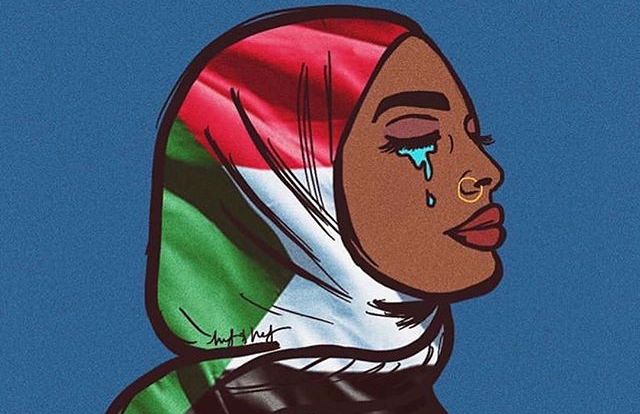
The Nation Bleeds: Rejecting the Discourse of Hatred, Rising Above the Wounds
Maryam Absher
Sudan is currently going through one of the worst periods in its contemporary history since gaining independence in the mid-1950s. This perilous time threatens its existence as a nation with distinct borders and a crucial geopolitical position on the world map, owing to Sudans vital geostrategic location in the regional context.
The ongoing war has put Sudans statehood at risk, and it has been described by its instigators as a futile war, where the winner is, in fact, a loser.
This reality necessitates that all political, social, and tribal components sense the danger, rise above the wounds, reject the discourse of hatred, and work towards rescuing the country from the swamp it has fallen into due to narrow ambitions. It is crucial to prioritize the nations well-being over individual interests and actively seek to embrace diversity. The consequences of not doing so have led to internal displacement, refugee crises within the region, thousands of casualties, injuries, and missing individuals, as well as the loss of essential resources and a near-complete halt of daily life.
One Hundred Days, But...
The war that erupted on April 15th (which its instigators expected to last only for a few hours) has now surpassed one hundred days without either side achieving a decisive victory. Instead, the conflict continues to rage on, causing chaos and destruction within cities and neighborhoods, affecting ordinary citizens who pay the price with their lives, belongings, and displacement.
Despite this, voices calling for the continuation of the war persist, ignoring the destruction and the death toll, while thousands flee, seeking refuge from the flames of war. Those who remain within the conflict zones suffer from hunger, illness, and the lack of basic necessities, compounded by extreme poverty that affects the entire country. Many citizens cannot afford a decent meal, and salaries have gone unpaid for four months. Life has come to a near-complete standstill.
The Educated People
The tragic reality Sudan is facing presents a strong necessity to maintain the unity and cohesion of the Sudanese people.
Writer and analyst Abdullah Adam Khattar has a positive view, stating that the current war has revealed, through the states receiving those fleeing from Khartoum, that all narrow affiliations have vanished. All Sudanese, in every region and state, have equal rights, and the receiving states have opened their homes and shared their food. He believes that those who ignite hatred and strife now will eventually fail, becoming a part of this great nations history, just like previous advocates of division and the discourse of hatred throughout history.
The discourse of hatred is driven by a combination of general and specific factors. Generally, it arises from power struggles and competition between different political, social, ethnic, religious, and sectarian factions. The expression of this discourse varies in intensity and form, depending on the societys experience and practice of democracy, particularly with regard to achieving national integration, national identity, and the principles and foundations of a rule of law state, including the existence of a free, impartial, professional, and effective press, and the presence of an enlightened, aware, and selfless intellectual elite solely devoted to serving the national interests of the concerned state. In societies where poverty, illiteracy, and ignorance are widespread, and there is a strong inclination towards populism, combined with a Sudanese temperament characterized by sharpness, excessive emotion, and conflict, all these factors and traits converge to fuel and encourage the discourse of hatred.
Particularly in Sudan, with its high levels of poverty, illiteracy, and ignorance among the masses, coupled with narrow-mindedness, selfishness, and intolerance among the educated elite, as well as the tendency to pander to populist sentiments, the discourse of hatred has found fertile ground. This is especially evident among the members of modern extremist ideological and political currents on both the right and left, as compared to traditional parties that previously dominated the political arena since before independence until the late 1960s. The members of the traditional parties were described as more tolerant, and it is said that close friendships existed among their leaders, adhering to the motto: Differences of opinion do not spoil friendship.

